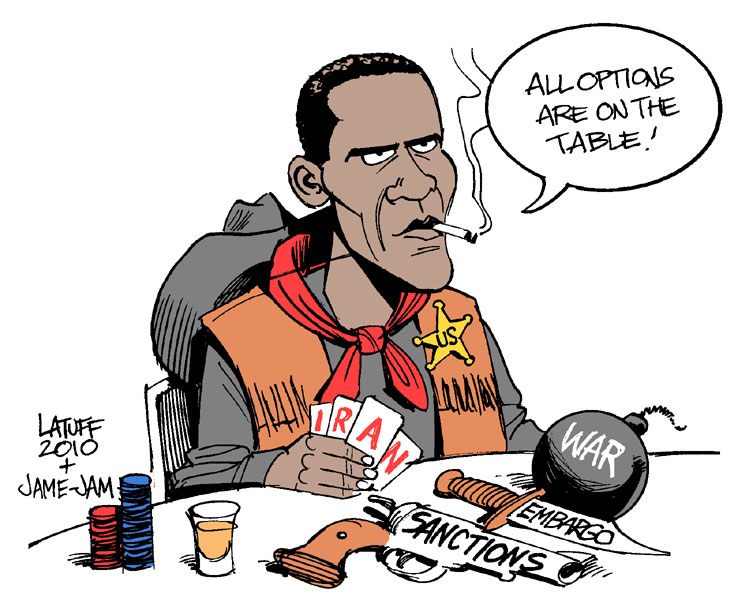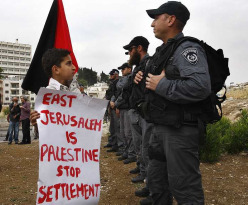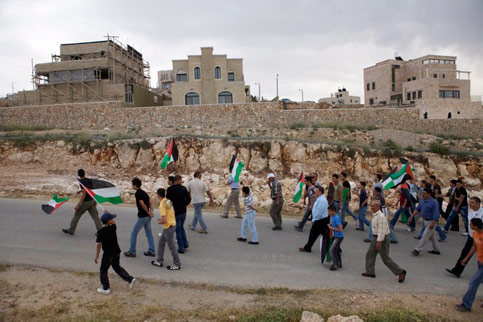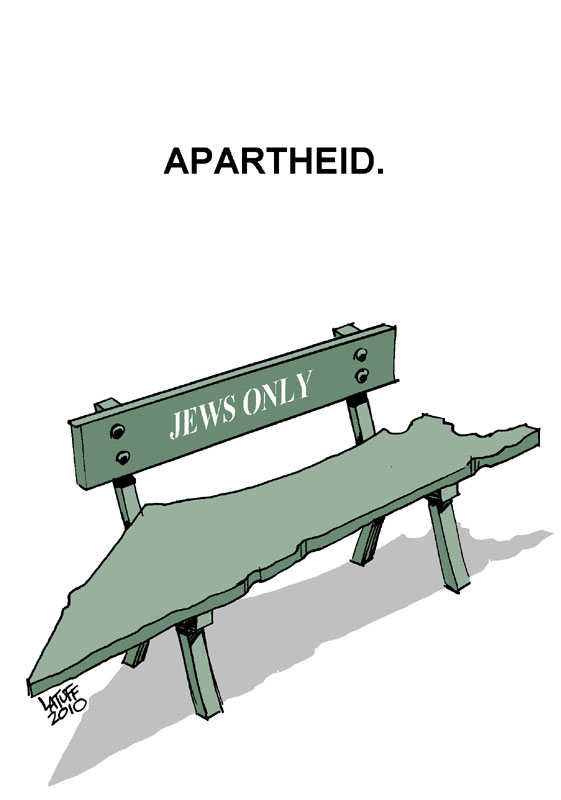EDITOR: The Dangers of Human Rights Activism in Israel The Israeli regime is using the weapon of gagging the press and media more than ever before, and on the whole the legal system is serving the government ends. However, all truth outs in the end, and despite the gag, now partially lifted, the bizarre case of Mr Makhoul and Dr. Omar Sayid has now come to light. Like the earlier campaign against the political leader of Balad, Azmi Bishara, this is a case of trumped-up charges of ‘espionage’ against human rights activists. It is not going to be the last one either. Israel has now waging war on human righs organisations, on media and political activists, on international peace and human rights supporters… the real struggle is only starting now to expose Israel’s daily crimes and atrocities. From Rachel Corrie to Tom Hurndell, Azmi Bishara to Anat Kamm, the many activists killed, maimed, jailed and abused, and to Mr Makhoul and Dr. Omar Sayid – they are all non-violent fighters for rights, equality and justice. Much of today’s blog is given over to this latest case of trying to snuffle protest and silence opposition to the growing Israeli repression.
Ameer Makhoul’s Gag Order: IOA
Posted by admin on May 11th, 2010 and filed under FEATURED NEWS STORIES, Israel, Uncategorized. You can follow any responses to this entry through the RSS 2.0. Both comments and pings are currently closed. Image of the original gag order (Hebrew) was first published by Richard Silverstein, Tikun Olam blog – 11 May 2010 www.richardsilverstein.com/tikun_olam/2010/05/11/makhoul-secret-court-documents-gag-order-and-ruling-partially-lifting-it/ Ameer Makhoul’s gag order 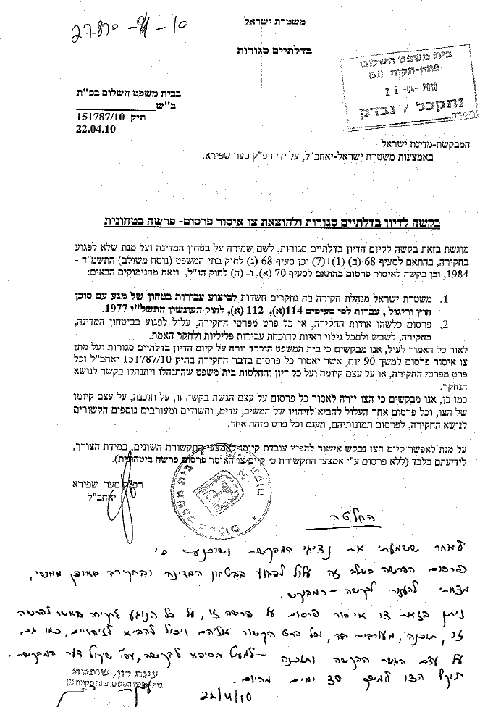 IOA Editor: In order to avoid misinterpretations, the following English translation was purposefully done on the literal side. It is factually accurate, even if the translator would have written it somewhat differently had the original text been written in English. [See notes in square brackets.] Police of Israel In Closed Doors Magistrate Court of Petach Tikva 22 April 2010 The Appellant – The State of Israel via the Israeli Police [Yakhbal-unit], Officer [rank] Sa’ar Shapira A request for a discussion in closed-doors and for the issuance of an order prohibiting publication – a security affair A request is hereby made to hold the discussion in closed-doors, in order to protect the security of the state and in order not to harm the investigation, in accordance with Section 68(b)(1)+(7) and also Section 68(c) of the Court Houses Law (combined version) 1984, and also a request to prohibit publication in accordance with Section 70(a) and (e) of the above law, and that for the following reasons: 1. The Israeli Police is conducting an investigation in which suspicions of security violations of contact with foreign agent and espionage, violations of Sections 114(a), 112(a) of the Penal Code of 1977, are being investigated. 2. Any publication about the investigation, or any detail of the investigation, may harm the security of the state, the investigation, obstruct or prevent evidence discovery to prove criminal violations and to investigate the truth. In view of the above, we are requesting that the honorable court will instruct to hold the discussion in closed-doors and for the issuance of an order prohibiting publication for 90 days, that will prohibit any publication on the matter of the investigation of file 151787/10 Yakhbal [unit], and any detail of the investigation, or its very existence, and all court discussions and decisions that took place or will take place in connection with the subject under investigation. Also, we are requesting that the order will instruct to prohibit any publication of the very filing of this request, its content, the very existence of the order, and any other publication that may result in the identification of the respondent, witnesses, suspects, and additional involved [parties] connected to the subject of the investigation, to the publication of their photographs, their addresses, and any other identifying detail. In order to effectuate the order, approval is requested to disseminate the fact of its existence to various media outlets, as necessary. For their information only (without publication by the media outlets that an order to prohibit publication of a security affair exists). [Rank] Sa’ar SHapira Yakhbal [unit] DECISION [Handwritten, at bottom, by Judge Einat Ron] After I heard the representatives of the appellant – and I was convinced that publication of this affair at this stage may harm the security of the state and the investigation in an actual manner, I found to accept the request as requested. An order to prohibit publication of this affair is hereby issued, on all that concerns the investigation on the matter of this affair, its content, [those] involved in it, and every detail related to them and could bring to their identification, as well as on request itself and its content – except the [annex?] to the request, in accordance with the judgment of the appellant. This order is for 30 days from today. Einat Ron, Judge Petach Tikva Magitrate Court 22 April 2010
IOA Editor: In order to avoid misinterpretations, the following English translation was purposefully done on the literal side. It is factually accurate, even if the translator would have written it somewhat differently had the original text been written in English. [See notes in square brackets.] Police of Israel In Closed Doors Magistrate Court of Petach Tikva 22 April 2010 The Appellant – The State of Israel via the Israeli Police [Yakhbal-unit], Officer [rank] Sa’ar Shapira A request for a discussion in closed-doors and for the issuance of an order prohibiting publication – a security affair A request is hereby made to hold the discussion in closed-doors, in order to protect the security of the state and in order not to harm the investigation, in accordance with Section 68(b)(1)+(7) and also Section 68(c) of the Court Houses Law (combined version) 1984, and also a request to prohibit publication in accordance with Section 70(a) and (e) of the above law, and that for the following reasons: 1. The Israeli Police is conducting an investigation in which suspicions of security violations of contact with foreign agent and espionage, violations of Sections 114(a), 112(a) of the Penal Code of 1977, are being investigated. 2. Any publication about the investigation, or any detail of the investigation, may harm the security of the state, the investigation, obstruct or prevent evidence discovery to prove criminal violations and to investigate the truth. In view of the above, we are requesting that the honorable court will instruct to hold the discussion in closed-doors and for the issuance of an order prohibiting publication for 90 days, that will prohibit any publication on the matter of the investigation of file 151787/10 Yakhbal [unit], and any detail of the investigation, or its very existence, and all court discussions and decisions that took place or will take place in connection with the subject under investigation. Also, we are requesting that the order will instruct to prohibit any publication of the very filing of this request, its content, the very existence of the order, and any other publication that may result in the identification of the respondent, witnesses, suspects, and additional involved [parties] connected to the subject of the investigation, to the publication of their photographs, their addresses, and any other identifying detail. In order to effectuate the order, approval is requested to disseminate the fact of its existence to various media outlets, as necessary. For their information only (without publication by the media outlets that an order to prohibit publication of a security affair exists). [Rank] Sa’ar SHapira Yakhbal [unit] DECISION [Handwritten, at bottom, by Judge Einat Ron] After I heard the representatives of the appellant – and I was convinced that publication of this affair at this stage may harm the security of the state and the investigation in an actual manner, I found to accept the request as requested. An order to prohibit publication of this affair is hereby issued, on all that concerns the investigation on the matter of this affair, its content, [those] involved in it, and every detail related to them and could bring to their identification, as well as on request itself and its content – except the [annex?] to the request, in accordance with the judgment of the appellant. This order is for 30 days from today. Einat Ron, Judge Petach Tikva Magitrate Court 22 April 2010
Israel bows to pressure and admits arrest of rights activist: The Independent
By Catrina Stewart in Jerusalem Tuesday, 11 May 2010 The Israeli authorities finally revealed yesterday that they had been holding a prominent Israeli-Arab human rights activist for several days and had accused him of spying for Lebanon’s Hizbollah guerrillas.
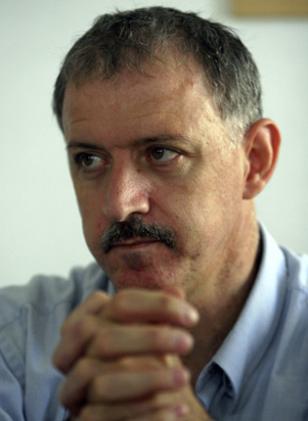
Israel appeared to buckle under intense domestic pressure to release details of the case against Amir Makhoul after a gagging order issued by the courts had prevented the media from reporting details of the case. The order, which covered details including his identity, riled democracy advocates in Israel after a similar case last month involving the secret house arrest of an Israeli journalist. Mr Makhoul, the director of Palestinian non-governmental organisation (NGO) Ittijah, was arrested in a dawn raid on his home in the Israeli town of Haifa on Thursday last week. Israeli police said yesterday that they suspected Mr Makhoul and Omar Sayid, a member of the Arab political party Balad who was arrested on April 24, of spying for Hizbollah. Israel views Lebanon as an enemy state and fought a devastating month-long war against Hizbollah in 2006. In recent weeks, Israel has accused Hizbollah of obtaining Scud missiles from Syria. A lawyer acting for the two men said the charges had “no basis” and were merely a tool to clamp down on outspoken Israeli-Arabs, Palestinians who have taken Israeli citizenship. “Contacts with foreign agents has become a serious [tool] for criminalising Arabs in Israel,” said Hasan Jabareen, general director of the Adalah human rights organisation, and part of Mr Makhoul’s legal defence team. “Any contact, whether it is with human rights organisations or just social contacts, can be perceived by Israel as contact with foreign agents,” Mr Jabareen said, adding that lawyers had not been allowed to meet with Mr Makhoul. Mr Makhoul, whose brother Assam is a former member of Israel’s parliament, is a leading advocate on Palestinian rights issues, particularly within the Israeli-Arab community. Assam Makhoul told Ha’aretz newspaper that the family believed that Mr Makhoul had angered the Israeli authorities with his campaigns that fought the government’s “racist and discriminatory policies” towards Israeli-Arabs. Israel’s 1.5 million Arabs who took citizenship in 1948 when the country was formed remain a minority among the 7.5 million population, and have long claimed that they are treated as second-class citizens compared to Jewish Israelis; economic and educational standards for Arabs are much lower than in Jewish communities. Israeli police entered Mr Makhoul’s home at around 3am on 6 May. They searched his home, confiscating the family’s mobile phones, laptops and cameras, before taking him away for questioning. The family was given no explanation for the arrest, beyond unspecified “security” reasons. Ittijah’s offices were also searched. Prior to his arrest, Israel’s Interior Ministry issued an order banning Mr Makhoul from travelling abroad for two months because of security concerns. The arrest of the two men has inflamed tensions amongst the Arab-Israeli community. A demonstration was planned in Haifa to protest against the detentions. Several Palestinian and international rights bodies condemned the arrest, and said that Israel had “escalated” a sustained campaign against Arab rights groups. “In addition to arbitrary arrest and detention, Israeli authorities have met Palestinian human rights activism in recent months with a variety of measures, including raids, deportations, travel bans, visa denials and media attacks against nongovernmental organisations,” the groups said in a joint statement. Israeli NGOs have complained that they are witnessing a growing state-backed campaign to curb their freedom of operation, including a proposed new law that would strip many activist bodies of their NGO status. Right-wing activists have also stepped up their efforts to discredit organisations perceived as anti-Israeli. Because of the gagging order, Mr Sayid and Mr Makhoul’s arrest was initially only reported on blogs, while Israeli reporters made cryptic references to the case. The affair carried particular resonance in Israel, coming so soon after the case of Anat Kam, an Israeli whistle-blower who was placed under secret house arrest in December, but news of her detention was only made public at the end of March after Israeli newspapers dropped hints about the case.
About the Secret Empire that has decided to Criminalize Minority Dissent in Israel: The Only Democracy?
May 12th, 2010, by Assaf Oron No, this story does not come from the Occupied Territories, where residents are under a 43-year military rule and where wee-hour arrest raids are a routine occurrence. This comes from right inside Israel. Dr. Omar Sa’id, A Palestinian citizen of Israel and resident of Kafr Kana near Nazareth, was arrested by Israel’s secret police (known in English as Shin Bet and in Israel as Shabaak) two weeks ago. He is still in custody without access to a lawyer. Per Shin Bet request, the courts issued a gag order, with which the Israeli MSM complied. The Hebrew blogosphere has learned of the story a few days ago and ignores the gag. The gag was partially lifted Monday. This joins the better-known story of Ameer Makhoul, director of the Ittijah human rights group. The Shin Bet raided his Haifa home in the wee hours of May 6, kidnapped him, wreaked havoc and confiscated the family’s computers. He, too, is held incommunicado. That story, as well, has been gagged and the Israeli MSM doggedly obeys. Only on Monday, after a blogosphere frenzy led by the indomitable Richard Silverstein, did the Israeli press release oblique stories. A few hours later, shortly before a demonstration against the arrest took place in Haifa, the court partially lifted the gag and admitted that the two arrests are related. WTF?? More about the Arrested Men Dr. Omar Sa’id, A Palestinian citizen of Israel and resident of Kafr Kana near Nazareth, is a pharmacologist and entreprenur, co-founder and CEO of Antaki Center for Herbal Medicine. On April 25, en route to Jordan, he was arrested by Shin Bet. After interrogation he was transferred to police custody, where he is still held without access to a lawyer. Ameer Makhoul is director of the Ittijah organization, a coalition of Israeli-Palestinian civil society groups. Apparently he is also the brother of current Knesset Member Issam Makhoul (who survived a right-wing assassination attempt in 2004). Ameer Makhoul has been recently involved with the boycott-divestment-sanctions (BDS) movement, attempting to bring an end to the Occupation via nonviolent means. 2010: A Slew of Israeli Spook Scandals What’s up with Israel’s Secret Empire this year – and how much lower can Israel’s “Free press” sink? In January, the Mossad liquidates Mahmoud Al-Mabhouh in Dubai. As world media place Mossad atop the suspect list, the Israeli media, that doggy-watch-dog of our “only democracy”, celebrates the feat. But – without saying Mossad did it. Only “the foreign press reports…”, a common refrain in Israeli MSM whenever they really want to gossip about something, but don’t want to get in trouble with the Secret Empire. So they sucked up to the immaculate execution and speculated wildly (and optimistically) about the great benefits to Israel and its fabled “deterrence power” that this assassination had restored. A few days pass, and the Dubai police rolls out pictures of 11 suspects, all with ties to Israel, and places them on the Interpol list. Friendly governments learn their passports have been forged. Israeli dual citizens learn their personal passports have been abused, placing them under direct threat of revenge. Then another 15 pictures released, with additional damaging details. The media celebration in Israel turns into a scapegoat-seeking and CYA exercise (“whose fault is this? We said it was a sloppy job from the start” etc.) Yet, I’ve heard several credible reports that on Purim this year, the most popular costume among Israeli teens and college gals was “Gail”, the assassin-assistant whose pretty passport picture circulated around the world. This brings us to March, when a new spook affair surfaces: rumors circulate in the Israeli blogosphere that Anat Kamm, a young journalist, is under house arrest with a gag order. I hear about it from fellow Seattelite and fellow progressive I-P blogger Richard Silverstein, who calls to seek my advice. He explains that Kamm is being indicted for stealing secret documents during her military service, and passing some of them after her discharge to an Israeli investigative journalist (for no payment). Silverstein feels she is a whistleblower who is being framed as a traitor via the way the Secret Empire treats her, including the gag order. The Israeli MSM obey the gag order; progressive bloggers post about it here and there, but here’s the catch: Kamm herself contacts them personally asking them to respect the order! The bloggers initially oblige, and one by one remove the story. At this point (mid-March) Richard feels that 1. Contrary to the perceptions of Kamm and her lawyer, respecting the gag actually makes her court prospects worse not better, and 2. The story itself – and the question whether Kamm is a whistleblower or a traitor – is a public issue, and the public should know about it. He calls me asking for my advice. Given that most of the details were total news to me, and that I was packing up to go to Israel on a Bar-Mitzva-laden visit, I couldn’t do much more than mumble lamely. Fortunately, Richard did what his heart told him, which was the right thing: he went out with the story and ultimately led to the gag’s implosion within a few weeks, even inside Israel. Right now, Kamm’s prospects still seem dim; the Shin Bet successfully framed her as a “traitor”, even though the documents she leaked were of the whistleblower kind: they showed how the IDF in the West Bank pissed all over Israel’s High Court ruling and continued to assassinate Palestinian targets even when a bloodless arrest was possible. The Israeli MSM, which towards the end of the gag complained loudly about it even as they obeyed, immediately turned to collaborate with the framing of Kamm, rather than open a debate about the true scandal. To be precise, the electronic media collaborated, while the printed press was split with two right-wing tabloids inciting against her, against the journalist (Uri Blau, arguably Israel’s top investigative journalist with a special knack for embarrassing the “security” Establishment) and even against his newspaper Haaretz, and with the centrist tabloid Yediot taking a more ambivalent stand. Blau himself is now in London; the Shin Bet will arrest him if he lands in Israel, an arrest that would violate a deal they struck with him and Kamm during the latter’s interrogation. Many speculate that Kamm herself was really the small fry, and that neutralizing the perennial scandal-finder Blau was the main goal. Anyway, in the aftermath of the Kamm story, one unanimous conclusion in the Israeli MSM conventional-wisdom was that gag orders on arrests have proven futile and only an idiot would try them again. Well, whadayaknow. A few weeks pass by, and not one, but two simultaneous arrests (not house arrest, real arrest) and gag orders. And not against a young person who prima facie did engage in wrongdoing (making illegal copies of secret documents) – but of well-known figures, an economic leader and a civic leader of the Palestinian-Israeli public. And the media obey yet again. What is this? A deliberate campaign by Shin Bet, to prove that indeed Israel is an Apartheid police state as its worst critics claim? I thought we Jews were supposed to be smart. I mean, forget for a second the human-rights, democracy and free-press teeny details. In many ways, it’s DAH STUPID that is scary here. What part of “Rebrand Israel” do these arrests fall under? And more importantly: Who the crap runs Israel nowadays? The Secret Empire that Snuggles Israel Israel is a pretty tiny nation, with a h-u-g-e secret apparatus: The Shin Bet, which runs the show in the West Bank and (to a lesser degree, but still more than you’d think) in Gaza – while keeping a friendly open eye on Israelis as well. The world-famous Mossad, whose “long hand” was what the Israeli MSM celebrated during these short happy days between the Dubai hit job and the appearance of pretty-Gail-passport-pics. The list doesn’t end there: The IDF toys with its own Shin-Bet-like operation in the West Bank (and formerly also in Lebanon). Known as Unit 504, its officers go around in civvies, recruit collaborators, etc. I escorted some of these creeps while serving in Lebanon in 1986. Our nuclear arsenal is of course, secret and off-limits, off-scrutiny to the common Israeli citizen or Israeli media. Under whose control? The military? A special unit directly reporting to the PM? I don’t know. But here are two agencies related to our little nuclear thingie one way or another: The Israeli outfit that recruited Jonathan Pollard was neither Shin Bet, nor Mossad. It was the “Bureau for Science Contacts”, a spook agency hardly anyone heard of till the Pollard affair broke out. Another less-known, but still notorious and extremely powerful secret agency, is known in Hebrew as MLMB (“Director of Security of the Defense Establishment”). This is essentially a one-man fiefdom, with the first director serving for nearly 40 years, and setting the agency’s trademark vindictive style. The MLMB played a key role in the Vanunu affair, and especially in Vanunu’s persecution since serving his “espionage” sentence. …and I bet there are more… A democracy cannot have such a disproportionate outsized Secret Empire. This in itself is mathematical proof, if you will, that Israel is not a democracy in the post-World-War-II sense. Add to this the lack of a constitution (mistakenly seen by some pro-status-quo commenters as a “triviality”), the inter-connectedness of the executive and legislative due to the parliamentary system (a mixed blessing: the check-and-balance becomes the power of coalition members to break it, but increasingly parties are bought off with ridiculously large numbers of ministerial posts), and last but not least, the fact that much of the judiciary began its career as military prosecutors and military judges – and the “democracy or not” debate is pretty much over. The Secret Empire wants an operation, it will get its operation regardless of what the government thinks. The Secret Empire wants a gag order, it will get its gag order no matter how outrageous. At least in the Kamm case, both judges who approved the gag and its extension were products of the military “justice” system. Consider also this: while, say, the CIA is under some sort of scrutiny however limited, and a large chunk of the CIA are publicly-known and publicly-accessible bureaus – the Israeli spooks are above the law and beyond reach. Until the late 1990’s we didn’t even know the name of the heads of Shin Bet and Mossad, let alone anyone else (unless you knew them personally; I personally know at least one Mossad agent, and a few more who seriously considered . The 1995 assassination of PM Rabin, a huge Shin Bet flop, led to the practice of making the heads’ names public and (supposedly) a bit more accountable. But they still take no one’s orders. Rather, as the years go by and our politicians become lamer and more corrupt, the head of Shin Bet is often the one dictating policy to the government rather than vice versa. A case in point is Yuval Diskin, the current Shin Bet chief. A few years ago he started a campaign framing civil-society groups of Israeli Palestinians as the enemy within. Going as far as stating that even actions which are considered legitimate in a democracy (lobbying for equality on a communal basis and not just a personal one; in truth our Arabs get neither), even such actions undermine the state. The arrests of Dr. Sa’id and Mr. Makhoul are a direct manifestation of Diskin’s world-view. Please make sure to contact your nearest Israeli embassy or consulate, and give them an earful of what you think about this. Oh, and join the Facebook group for Makhoul’s and Sa’id’s release. The gag and the MSM’s cowardice, though issues to deal with as well, pale in comparison to this escalating campaign to criminalize the leadership of Israel’s Palestinian citizens. Watch a video of Real News Network coverage of Makhoul and Sa’id’s case. (adapted from this Monday post on Daily Kos. Since then, the gag has been partially lifted, most probably due to the combined pressure of bloggers ignoring the gag and the Israeli-Palestinian community openly protesting the arrests.) Continue reading May 13, 2010
